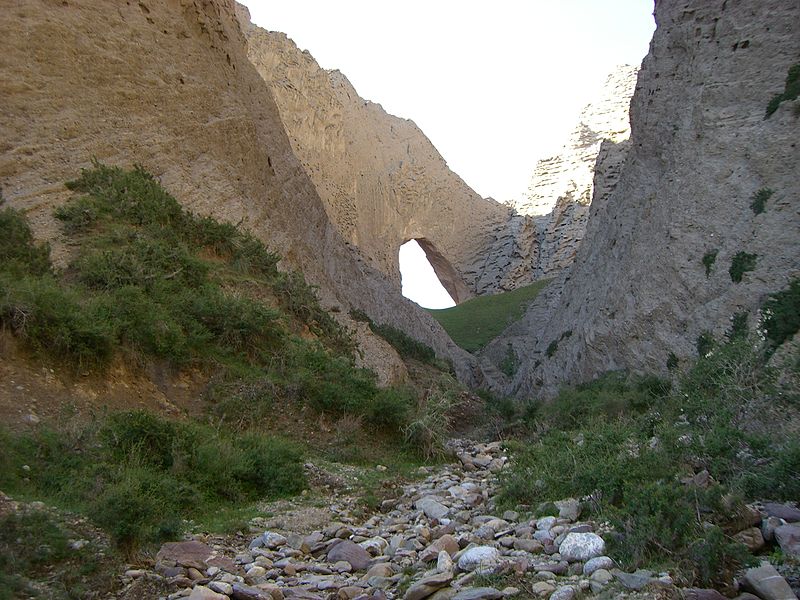
Rhythms of Kashgar: Experiencing Uyghur Traditional Music Performances in Xinjiang
Discover the captivating Uyghur traditional music performances in Kashgar, Xinjiang, where authentic rhythms and ancient instruments create an immersive cultural experience. Perfect for travelers eager to connect with living heritage, these performances blend storytelling and skill in vibrant local settings.
Best Evening Arrival
Plan your visit around 7–9 pm when performances typically start and the desert cools down, enhancing comfort and atmosphere.
Comfortable Seating
Bring a lightweight cushion or wear comfortable clothing; seating is often on low stools or simple benches for extended periods.
Ticket Purchase Flexibility
Buy tickets onsite for spontaneous performances and to get recommendations from locals on the best venues that day.
Respect Local Customs
Avoid flash photography and loud interruptions during performances to maintain respect for artists and the intimate setting.
Rhythms of Kashgar: Experiencing Uyghur Traditional Music Performances in Xinjiang
Kashgar, on the western edge of China’s vast Xinjiang region, offers more than its storied Silk Road legacy. As daylight fades, the city pulses with the unique energy of Uyghur traditional music performances—raw, vibrant, and fiercely alive. These gatherings are practical cultural immersions, blending rhythmic strings, penetrating vocals, and intricate percussion to tell centuries-old stories.
The heart of these performances is the dutar, a long-necked lute that hums and plucks with purposeful precision. Accompanied by the dap, a frame drum that commands attention with its steady yet surprising beats, it all comes together to shape moments of authentic local connection. Watching and listening here isn’t just entertainment; it’s a study in endurance, skill, and community rhythm.
Most performances take place in local teahouses or open squares, where you can pull up a simple wooden stool and let the stories unfold. These are spaces charged with the personalities of the musicians and the audience—the clap, the eye contact, the call and response. The music invites you in but also challenges your expectations: it is raw, sometimes dissonant, yet deeply focused.
To plan your visit, target the evenings when the city’s heat settles, usually around 7 to 9 pm. These gatherings often last about 1.5 to 2 hours, offering a concentrated experience without fatigue. Prioritize venues around the Old City—streets here hum with anticipation and the air carries flour, spices, and the distant echoes of song.
Buy your tickets on arrival to maintain flexibility and tap into spontaneous suggestions from locals. Prices vary but generally remain affordable to encourage engagement without restricting access. Dress comfortably for seated performances; lightweight layers protect against the occasional chill when night cools the desert climate.
While the music may appear casual, the performers are disciplined artisans. Expect to see traditional costumes punctuating the dim-lit scenes, the musicians’ expressions concentrating on their craft like seasoned adventurers mapping unknown terrain. This is culture confronting modernity yet refusing to soften its edges.
Sound systems can be sparse, so front-row seats deliver raw audio that captures every string tug and breath. For photographers, aim for early performances to catch warm natural light before darkness deepens the scene. Allow your senses to guide you—the dry desert breeze feels like a shared pulse with the music’s vibrant energy.
Engaging with Uyghur traditional music in Kashgar is an experience shaped by respect for a culture fiercely itself. It’s practical, memorable, and raw. You’re not just an observer, but a participant in a dynamic exchange where history and rhythm challenge the quiet of the night.
Nearby Trips
All Adventures
Boat Charters
Water Activities
Adventures near Kashgar, Xinjiang
Discover the unique and memorable adventures that make Kashgar, Xinjiang special.
Frequently Asked Questions
Are Uyghur music performances in Kashgar accessible to tourists?
Yes, many performances are open to visitors, especially in teahouses and open squares in the Old City. Buying tickets on-site and asking locals can help find authentic, accessible shows.
What languages are typically spoken at performances?
Performances are usually conducted in Uyghur language. Basic Mandarin or English is sometimes understood by venue staff, but music itself transcends language barriers.
Can I record the performances?
While casual recording is generally permitted, using flash photography or professional equipment without permission is discouraged to respect artists and audience experience.
Are there specific nights or festivals when performances are more vibrant?
Yes, special occasions like Nawruz and local cultural festivals feature extended performances with larger ensembles and traditional dances.
Is it safe to attend performances as a solo traveler?
Absolutely. Kashgar is welcoming to solo travelers, but it's advisable to attend events in well-known venues and stay aware of your surroundings.
Do the performances involve audience participation?
Occasionally, performers encourage clapping or call-and-response singing, creating communal energy without requiring special skills.
Recommended Gear
Lightweight Layered Clothing
Allows quick adjustment to cool desert evenings and variable spring winds.
Comfortable Shoes
Essential for navigating old city streets and standing during venue entry or informal street performances.
Small Cushion or Foldable Seat Pad
Improves comfort during seated performances, especially where benches or stools are hard.
Compact Camera without Flash
Captures the ambient mood discreetly without disturbing performers or locals.
Local Insights
Hidden Gems
- "The small courtyard cafés near Id Kah Mosque offer intimate live music sessions less known to tourists."
- "Local corner markets often feature impromptu street musicians playing Uyghur melodies in authentic surroundings."
Wildlife
- "While urban Kashgar limits wildlife, night skies reveal a canopy perfect for stargazing—keep an eye out for desert spiders and insects woven into the evening air."
History
"Kashgar’s music reflects its position as a Silk Road hub, influenced by Persian, Central Asian, and Chinese aesthetics, preserving centuries of Uyghur identity through sound."
